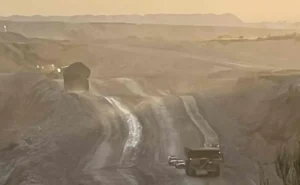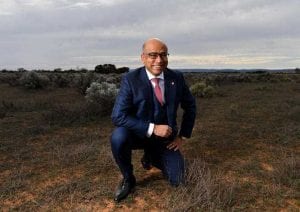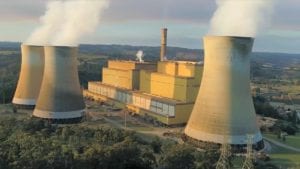
There is a grim precedent for the Australian Coalition government’s decision to push for coal and ignore the majority of expert: the same government’s rejection of climate science.
Like his predecessor, Tony Abbott, prime minister Malcolm Turnbull is simply refusing to listen. Abbott said that climate science was “crap”, and Turnbull is saying the same thing in response to what he is being told by energy experts.
To insist that extending the life of the Liddell coal-fired generator in the NSW Hunter valley is the only option available to keep the lights on is to simply ignore the advice of the Australian Energy Market Operator, as well as by the chief scientist Alan Finkel, the CSIRO, the owners of networks, the big gentailers and any number of individual experts and academics.
AGL could not have made it any clearer, after the meeting with the PM on Monday, if it hadn’t already done so, about the state of the Liddell plant.
Liddell, it suggested, is an ageing piece of junk: it’s cost them $140 million to keep it running, will cost them another $160 million to keep it going just until 2022; and it can’t be relied upon to operate in heatwaves that create those critical demand peaks; and it will likely have more unexpected outages.
For a government married to the concept of “baseload” power, it is an extraordinary decision to put its hopes on this piece of aged machinery. It makes no economic sense, no environmental sense, and is a potential engineering catastrophe.
Turnbull and energy minister Josh Frydenberg have even picked up the Abbott-era sloganeering and name-calling: Blackout Bill, Brownout Butler and No-coal Joel (Fitzgibbon). You don’t need facts to play a game like this, in fact you are better off without them. Just ask Peta Credlin about the “carbon tax”.
Indeed, it is no coincidence that the politicians wagging the tail of the dog on this issue are the very same who fought the science of climate change: Abbott, deputy prime minister Barnaby Joyce, ex resources minister Matt Canavan, environment committee head Craig Kelly, and around half of the back-bench.

Even Treasurer Scott Morrison, the man who brandished the lump of coal in parliament in the middle of last summer’s heatwave, said he simply didn’t accept that Liddell is too old and unreliable.
“I’m older than it and so are you and I think we’re still doing alright,” Morrison told the Seven Network’s David Koch. Maybe his toothbrush is also over 50 and doing just fine.
Turnbull justified his position on Tuesday in this way:
“I think the approach we are taking is common sense, it is practical, it is business-like. This is not a question of ideology, the way that Labor is going on.
“It just reminds you of the idiocy that they continue to bring to energy policy. There is no clearly set out plan to replace Liddell.
“Now you can either, if you are Labor, if you are with Bill Shorten, with old Blackout Bill himself, he says that is an issue for down the track. Well I am sorry, that is how we ended up with the problem with Hazelwood, with the very late notice of closure.”
But there is a plan. And it was spelled out for him in extraordinary detail by the AEMO. As Turnbull said, time is of the essence, but this wasn’t a call to rush back to last century’s technology, but to embrace the future.
“Our advice was fairly pragmatic” and “straight-forward,” AEMO boss Audrey Zibelman said on Tuesday. “We are concerned that on a 45°C day if we lose a generator (which AEMO has said is quite likely) we want reserves in the system to be able to respond.
“In our report we identified the fact that with the amount of variability (from solar and wind energy and electricity usage) is changing rapidly, we need resources that can change rapidly.
“That may be different to traditional baseload resources, which do not move a lot. It doesn’t mean baseload is bad, it’s just that we need a different portfolio. (Baseload) may not be able respond in the time period we need it to respond.”
Sound like Liddell? Not really. And AEMO laid out a plan to replace Liddell with smart technology, demand response and – most uncomfortably for Turnbull’s Coalition – by a nationally coordinated scheme to encourage renewables, and dispatchable generation. AEMO modelled a 45 per cent renewables share for 2030.
What is particularly worrying about the past week – apart from the obstructionism and misrepresentations by Turnbull and his team – has been the role of the mainstream media.
It was to be expected that the Murdoch media, with the bold exception of veteran commentator and economic literate Alan Kohler, would be happy to toe the line, even to push it to the point of implausibility.
But Fairfax and the ABC were equally complicit. The government was able to manage the release of the two critical AEMO reports, firstly by selective leaking to the Murdoch media on Monday, and then via a “lock-up” with selective journalists on Tuesday – without the knowledge or participation of AEMO.
What followed then was reporting in Fairfax and on the ABC that bore little resemblance to the content of the AEMO report. Both media, quoting Turnbull, said that AEMO had called for Liddell to be kept open because of the fear of blackout.
But AEMO said nothing of the sort. Its staff know only too well that Liddell cannot be relied upon at those moments of 45°C heat – AGL documented its failures in the February heatwave – and its principal warning was that the greatest risk of unserved energy was the failure of ageing units like Liddell.
When asked of this on Tuesday, Zibelman said: “What do we want to do to make sure we are riding the technology innovation curve in the right way…. it all has to fit.”
And she added for good measure: “The power system works best when we can operate it in accordance with the law of physics. (That means) we need to make sure we have sufficient tools to respond in a real time system.”
On Monday, the mainstream media was still enthralled by Turnbull’s media machine: “Win for Malcolm Turnbull: AGL CEO Andy Vesey backs down over future of Liddell coal-fired power plant,” proclaimed Fairfax.
No, he didn’t. Vesey more or less told Turnbull to stick his ideas about Liddell where the sun don’t shine and the wind don’t blow in polite company. He again made his point that if anything was to be relied upon in an energy crisis, it wouldn’t be Liddell.
It was a nice touch that former UNFCCC secretary Christiana Figueres, a key player in the Paris climate accord to which Australia is a signatory, should be in the country this week. Asked on ABC’s 7.30 report last night about the interest in Liddell, she replied:
“Well, I am admittedly surprised …Maybe it’s because we’re ‘Down Under’ that things are somewhat upside down, because most governments are actually moving to lessen their dependency on coal, for many different reasons in addition to the environmental.”
And, she warned, the world’s carbon budget is being exhausted, and “we are very, very close to not being able to avoid (dangerous climate change) anymore. We are within three years of crossing a threshold that is going to make it very, very difficult to avoid the worst impacts. And we haven’t even seen those worst impacts.”
And the Pope also piped in, with a message that could have been directed at both Abbott and Turnbull:
“Those who deny it (climate change) should go to the scientists and ask them. They are very clear, very precise,” the pontiff said Monday during a press conference on the return leg of a five-day Colombia trip.
“A phrase from the Old Testament comes to mind: ‘man is stupid, a stubborn, blind man’,” he added.
“These aren’t opinions pulled out of thin air. They are very clear,” he said.
“They (world leaders) decide and history will judge those decisions,” he added.
And that is the weird part of this whole development. Turnbull was caught out in 2009 when he was pincered by Labor and the climate deniers because he was supporting action on climate change. Now he is trying to pincer Labor by siding with the climate deniers over coal.
It’s not likely to end any better; not for Turnbull, not for consumer bills, not for energy reliability, and not for the planet.









